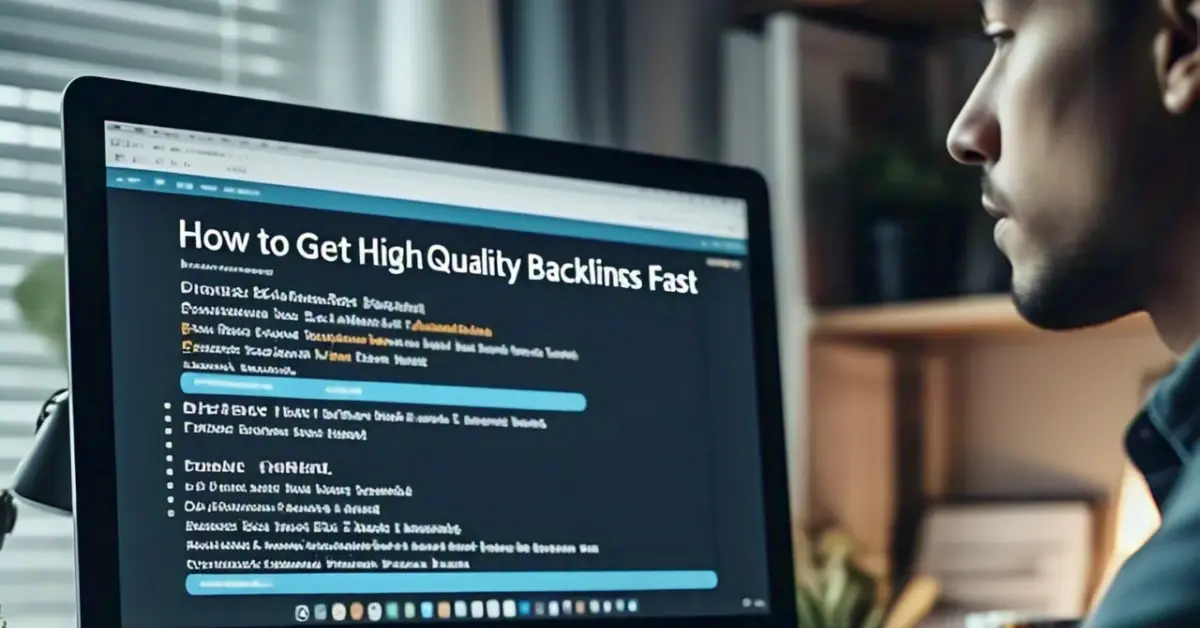Just because you want to improve your website’s SEO doesn’t mean you should resort to spamming tactics. Instead, you can focus on building high-quality backlinks that will enhance your online presence and credibility. This guide will show you effective strategies to earn valuable links while maintaining a positive reputation in your industry. With the right approach, you can ensure your backlink profile is both natural and authoritative, leading to long-term success without the risks associated with spammy practices.
Key Takeaways:
- Focus on Relevant Content: Create and share content that is valuable and relevant to your target audience, which can attract organic backlinks.
- Engage with Influencers: Build relationships with industry influencers or bloggers to get authoritative backlinks without resorting to spammy tactics.
- Utilize Social Media: Promote your content on social media platforms to increase visibility and encourage organic sharing, leading to potential backlinks.
Understanding Backlinks
A backlink is imperatively a hyperlink from one website to another, and it plays a pivotal role in how search engines like Google evaluate your site’s authority and relevance. When another website links to your content, it indicates to search engines that your material holds value, which can subsequently elevate your ranking in search results and drive organic traffic to your site.
What Are Backlinks?
An effectively functioning backlink operates as a vote of confidence from one site to another. When reputable sites link to your content, it demonstrates that they endorse your information, potentially leading to increased visibility and credibility in your industry. It’s not just about any link; it’s specifically about links from trustworthy sources that can significantly impact your online presence.
Importance of High-Quality Backlinks
While backlinks are a common component of SEO strategies, their quality holds far greater importance than mere quantity. High-quality backlinks come from authoritative sites that are relevant to your niche. These backlinks not only enhance your site’s visibility but also improve your domain authority, making you more competitive in your field.
Backlinks build trust with both search engines and users. When reputable sites direct traffic to your content, it creates a web of credibility, allowing your audience to view you as an authority in your niche. This cascading effect can result in more engaging content interactions and higher conversion rates.
Differentiating Quality from Quantity
There’s a common misconception that accumulating a high number of backlinks will automatically lead to improved search rankings. However, this approach may backfire, as links from dubious sources can harm your site’s reputation and visibility. Focusing on securing a few high-quality backlinks is far more effective than panicking over the quantity of links you amass.
In your quest for backlinks, ensuring their quality should always be your top priority. High-quality links often originate from sites that have a good reputation, relevant content, and a substantial audience. When you concentrate on building relationships and sharing value, you’re more likely to attract those valuable links that can elevate your online presence.
Quality backlinks not only improve your site’s ranking but also contribute to a sustainable online strategy. Websites that rely on spammy or low-quality backlinks may jeopardize their credibility and face penalties from search engines, affecting their visibility. Thus, investing your efforts into acquiring high-quality backlinks is paramount for long-term success in your digital marketing endeavors.
How to Identify Quality Backlink Opportunities
One of the first steps in building high-quality backlinks is identifying the right opportunities that align with your website’s objectives. This process involves careful analysis and a keen understanding of the various factors that contribute to a robust backlink profile. As you venture into this task, keep in mind the significance of not just acquiring links, but ensuring that these links come from reputable and relevant sources that can genuinely enhance your site’s authority and visibility.
Analyzing Domain Authority
Even as you seek out backlink opportunities, one of the most vital metrics to analyze is Domain Authority (DA). This scoring system, developed by Moz, helps you gauge the strength and credibility of a domain based on various factors such as age, popularity, and size. A domain with a high DA is more likely to provide you with a backlink that carries weight, thus positively impacting your own site’s SEO. When identifying potential linking sites, prioritize those with a DA that is greater than your own, as these connections are likely to yield greater benefits.
Moreover, it’s vital to assess the trustworthiness of the domains you’re considering for backlinks. This entails conducting a thorough review of their content, traffic patterns, and overall reputation within your industry. In the age of algorithm updates and increased scrutiny by search engines, acquiring links from domains with a questionable history can be detrimental to your own site’s standing.
Understanding Niche Relevance
Assuming you’ve identified domains with a high DA, the next step is determining niche relevance. This means ensuring the sites you aim to get backlinks from relate closely to your industry or area of expertise. A backlink from a relevant site can provide context and authority to your own content, positioning you as a credible source for information. Moreover, search engines, particularly Google, focus on the relevance aspect when evaluating the value of backlinks; links from niche-related domains will significantly enhance your site’s ranking potential.
Niche relevancy is not only about direct industry alignment but also understanding how the content relates to your audience’s interests. Engaging with sites that share identical target demographics can lead to more qualified traffic diving through the referral links, increasing the chances of conversions. This approach ensures that your backlink profile feels organic and genuinely beneficial rather than forced or spammy.
Evaluating Link Positioning
Little attention is often paid to where links are placed within the content. The position of a link can greatly influence its effectiveness; links embedded in the context of a well-written and relevant article are significantly more impactful than those stuffed in footers or sidebars. You should strive for links that are included within the body of an article, as they tend to receive more clicks and carry more weight in the eyes of search engines. When approaching a site for a backlink, consider how you can naturally integrate your link into their existing content.
Quality link positioning is paramount for ensuring that your backlinks appear legitimate and useful to readers. Aim for placements that flow naturally with the content and provide genuine value to the audience. This not only serves your link-building strategy but also enhances the user experience for those reading the content where your backlink appears.
Effective Strategies for Building Backlinks
Keep in mind that building high-quality backlinks involves a range of strategies that can elevate your website’s authority without resorting to spammy tactics. Focus on establishing genuine connections and providing value, as these tactics will yield the best long-term results.
Guest Blogging: Best Practices
If you’re looking to leverage guest blogging for backlinking, it’s necessary to partner with reputable websites in your niche. Choose blogs that have engaged audiences and align with your brand’s values. By contributing valuable content, you can establish your authority while earning valuable backlinks. Always provide content that meets or exceeds the quality standard of the host site, which will not only enhance your credibility but also encourage readers to engage with your work.
If you plan your guest posts effectively, you can maximize your outreach efforts. Craft tailored pitches to blog owners, showcasing your expertise and suggesting relevant topics. Ensure that the content includes natural links back to your site that enhance reader understanding without appearing forced. Ultimately, the goal is to build relationships with these sites for future opportunities while helping to enhance their content and engaging their audience.
Developing Shareable Content
Strategies for developing shareable content should focus on creating resources that others find valuable. This includes in-depth guides, infographics, or unique research studies that provide insights into your industry. By focusing on quality and relevance, your content becomes more likely to be shared and linked to by others.
A great way to enhance the shareability of your content is to use attention-grabbing visuals and engaging headlines. This will encourage users to share your work across their platforms, amplifying your reach. Pay attention to current trends in your niche and strive to create timely content that resonates with your audience. Over time, this approach will increase your backlinks through genuine interest and engagement.
Utilizing Social Media for Link Building
Strategies for leveraging social media can significantly boost your chances of acquiring high-quality backlinks. Share your content across different platforms to maximize visibility and encourage discussion. Engaging effectively with your audience will not only promote your content but also invite chances for collaborations and organic link opportunities.
Building a strong social media presence allows you to connect with influencers and industry leaders who might share your content, leading to valuable backlinks. Regularly interacting with your followers and providing insightful commentary on industry-related topics can enhance your credibility and visibility. As a result, your content is more likely to get shared and linked back by others who find value in your expertise.
Leveraging Relationships for Backlinking
All effective backlinking strategies capitalize on the power of relationships. By fostering connections within your industry and beyond, you can create genuine opportunities for collaboration and link exchanges that lead to high-quality backlinks. This approach is not only about collecting links but also about building long-lasting connections that can enhance your brand’s authority and credibility.
Networking with Industry Influencers
You should actively seek to network with industry influencers who can provide valuable insights and opportunities for backlinks. Engaging with them can involve attending industry events, participating in webinars, or simply reaching out via social media with thoughtful comments and questions. By positioning yourself as a thoughtful and engaged member of your industry, you encourage influencers to take notice, and this can lead to more significant opportunities, such as guest posts or collaborative projects.
Additionally, when you establish rapport with these influencers, don’t hesitate to ask for a backlink. However, approach this request with tact and thoughtfulness. Focus on how a link to your content could benefit their audience, ensuring that the relationship remains mutually beneficial.
Collaborating with Complementary Businesses
One effective way to gain backlinks is to collaborate with businesses that complement your services or products. By forming partnerships, such as co-hosting a webinar, creating content together, or launching a promotional campaign, you can tap into each other’s audiences. This not only increases visibility but can also lead to backlinks when both parties share the collaborative content on their respective websites.
Another great advantage of collaborating with complementary businesses is that it opens doors to cross-promotion, enhancing your SEO results while establishing your brand within a wider community. This interaction generates authentic interest and can lead to organic link-building opportunities as both partners will likely want to reference the collaborative efforts on their platforms.
Joining Online Communities and Forums
Relationships built in online communities and forums can serve as a goldmine for backlinks. By becoming an active participant in these groups, you can share your expertise and insights, which helps in establishing your authority. This natural engagement often leads to opportunities where others may link to your valuable resources, further enhancing your site’s credibility.
To maximize these opportunities, ensure that you are providing real value in your contributions rather than simply dropping links. Focus on building a genuine rapport with community members and addressing their questions and needs thoughtfully. The more you contribute positively to the community, the more likely others will consider referencing your content.
Implementing White-Hat SEO Techniques
Now, as you navigate the complex world of SEO, embracing white-hat techniques is imperative for establishing a strong, sustainable online presence. These practices prioritize compliance with search engine guidelines while building your site’s authority organically. It’s about enhancing both your visibility and credibility without resorting to unethical tactics that could lead to penalties or tarnish your reputation.
Ethical Link Building Practices
One of the most effective ways to build high-quality backlinks is through ethical link building practices. This involves creating content that naturally attracts links from other reputable websites. Focus on crafting articles, infographics, or videos that provide value to your audience. When you offer informative and engaging content, others are more likely to link back to your site as a reference or resource.
Moreover, engaging in guest blogging can also help you to establish your presence on authoritative sites within your niche. When you contribute insightful pieces to these platforms, you not only earn valuable backlinks but also showcase your expertise, which in turn enhances your brand’s credibility.
Importance of Content Marketing
You should also recognize that content marketing plays a significant role in your overall SEO strategy. By consistently producing high-quality, relevant content, you create multiple opportunities for others to discover and link to your work. This not only boosts your visibility but also positions you as a thought leader within your industry.
Importance of content marketing lies in its capacity to engage your audience and encourage shares across social media platforms. When your content resonates with readers, they are more likely to spread it, generating organic backlinks that enhance your site’s authority. This organic sharing fosters an authentic connection with your audience, which is key to building lasting relationships.
Fostering Long-Term Relationships
Implementing strategies to foster long-term relationships with other businesses and influencers in your niche is imperative for building high-quality backlinks. Unlike short-lived campaigns focused solely on immediate results, sustainable partnerships allow you to create a network of support that can amplify your reach and reliability over time. Collaborating on content or co-hosting events can facilitate these connections, resulting in valuable backlinks from established sites.
Building these relationships requires effort and consistency. Engage with fellow industry professionals on social media, attend networking events, and actively participate in community discussions. As you develop genuine connections, you’ll find opportunities to mutually support one another, facilitating a natural exchange of backlinks that benefits all parties involved.
Monitoring and Analyzing Your Backlink Profile
To effectively manage your backlink strategy, you need to continuously monitor and analyze your backlink profile. This process helps you understand which links are contributing positively to your site’s performance and which may be harming your search engine rankings. Analyzing your backlinks periodically is necessary for maintaining a healthy link profile, enabling you to make informed decisions about your link-building efforts.
Tools for Backlink Analysis
One of the best ways to analyze your backlinks is by using dedicated SEO tools like Ahrefs, SEMrush, or Moz. These platforms provide comprehensive insights into your backlink profile, including the quality, quantity, and diversity of your links. You can evaluate the authority of linking domains, uncover any potentially harmful links, and gain valuable information on anchor text distribution—all of which are necessary for refining your backlink strategy.
Additionally, these tools typically allow you to set up alerts for significant changes in your backlink profile, enabling you to react quickly to any new or lost backlinks. Utilizing these tools can help you maintain a healthy backlink profile, ensuring that your site remains competitive in search engine results.
Tracking Referral Traffic
Monitoring your referral traffic is another necessary step in analyzing your backlink profile. By tracking where your traffic is coming from, you can identify which backlinks are driving the most visitors to your site. Utilizing tools like Google Analytics, you can access detailed reports to understand how much traffic particular backlinks are generating and their impact on your overall site performance.
Monitoring your referral traffic not only provides insights into the effectiveness of your link-building efforts but also helps you refine your strategy. If a particular link is bringing in a substantial amount of traffic, you may want to seek additional links from similar sources or create more content that appeals to that audience.
Your ongoing analysis of referral traffic can also reveal insights about user behavior. By understanding how visitors from different sites interact with your content, you can tailor your future link-building efforts to form stronger connections with high-performing sources.
Disavowing Toxic Links
On occasion, you may discover some backlinks that are detrimental to your SEO efforts, often referred to as toxic links. These links could be from low-quality websites or spammy domains, and they can adversely affect your site’s credibility and rankings. To combat this, you should regularly audit your backlink profile and identify those links that pose a risk to your site’s reputation.
If you find toxic links, it is necessary to disavow them to prevent search engines from considering them in their rankings. Google provides a Disavow Tool that allows you to submit a list of links you want to ignore, thereby helping to maintain the integrity of your backlink profile. Doing this proactively can safeguard your site against penalties that come from poor-quality links.
Referral links that are potentially harmful can significantly impact your site’s overall authority and ranking. Therefore, a meticulous approach to disavowing toxic links is paramount. By addressing these issues promptly, you enhance your site’s credibility and improve your ranking potential in organic search results.
Tips to Avoid Spammy Backlink Practices
Your approach to backlink building can significantly impact your website’s reputation and rank. Here are some key habits you should adopt to steer clear of spammy backlink practices:
- Focus on acquiring backlinks from relevant and high-authority sites.
- Avoid link exchanges with sites that are unrelated to your niche.
- Steer clear of automated link generation tools.
- Disregard directories that promise hundreds of links for a fee.
- Don’t buy links, as this can lead to severe penalties from search engines.
Recognizing Red Flags in Link Building
You should be vigilant in identifying red flags that indicate spammy link-building efforts. Look for websites with low-quality content, excessive ads, or those that are stuffed with keywords. These can be signs of a site that uses black hat SEO techniques, which could compromise your site’s credibility if associated.
Also, consider the nature of the backlinks you are receiving. If you notice a surge of links from unrelated websites or from domains that look suspicious, it’s a strong indicator that you may be veering into spammy territory. Maintaining a clean and worthy backlink profile is imperative for your overall SEO health.
Consequences of Spammy Backlinks
There’s a significant risk associated with acquiring spammy backlinks. Search engines like Google are continuously refining their algorithms to detect unnatural link patterns. If your website is flagged for such practices, it can lead to severe consequences including a drop in your search rankings or even a complete ban from search results.
The backlash from spammy backlinks does not only affect your search engine visibility but can also damage your brand’s reputation. Users who notice that your site is linked from unreliable sources may lose trust in your content and services, which can lead to decreased traffic and engagement.
Understanding the implications of spammy backlinks can help you make informed decisions when it comes to link building. The long-term benefits of a clean and authoritative backlink profile far outweigh the short-lived gains of using spammy practices. Ensuring quality over quantity will aid in fostering a trustworthy online presence.
Establishing a Sustainable Link Building Strategy
If you wish to create a sustainable link-building strategy, focus on producing valuable content that resonates with your target audience. Consistently engaging with your community and collaborating with other credible websites can help you earn natural backlinks over time. Building relationships within your niche can lead to quality links that can stand the test of time.
Additionally, consider leveraging guest blogging, exchanging insights with influencers, and utilizing social media platforms to share your content. Each of these strategies contributes not only to gaining backlinks but also to establishing your authority in the field. A well-rounded approach to link building ensures that you avoid spammy tactics while enhancing your online reputation.
For instance, participating in relevant online forums where you can share your expertise can organically lead to backlinks from reputable sources, boosting your site’s authority and visibility. By focusing on delivering value and fostering genuine connections, you can build a sustainable backlink profile that meets both your long-term goals and search engine guidelines. Assume that longevity and credibility should always take precedence in your link-building strategy.
Summing up
Considering all points, building high-quality backlinks requires a strategic approach that focuses on value and authenticity. You should seek opportunities to create engaging content that others will want to link to naturally. Networking with industry professionals and participating in relevant forums can enhance your visibility and establish your credibility, allowing you to gain valuable backlinks without resorting to spamming techniques. Always prioritize quality over quantity, as a few authoritative backlinks will have a more significant impact on your search engine rankings than numerous low-quality links.
In addition, regularly assessing your backlink profile can help you identify and nurture relationships that yield the best results. You can engage in guest blogging, collaborate on content, and utilize social media channels to promote your work, making it easier for others to recognize its worth. By remaining consistent and adhering to ethical practices, you will not only build a robust backlink profile but also foster a genuine online community that appreciates your contributions. This holistic approach ensures sustainable growth for your website while enhancing your reputation in your niche.



